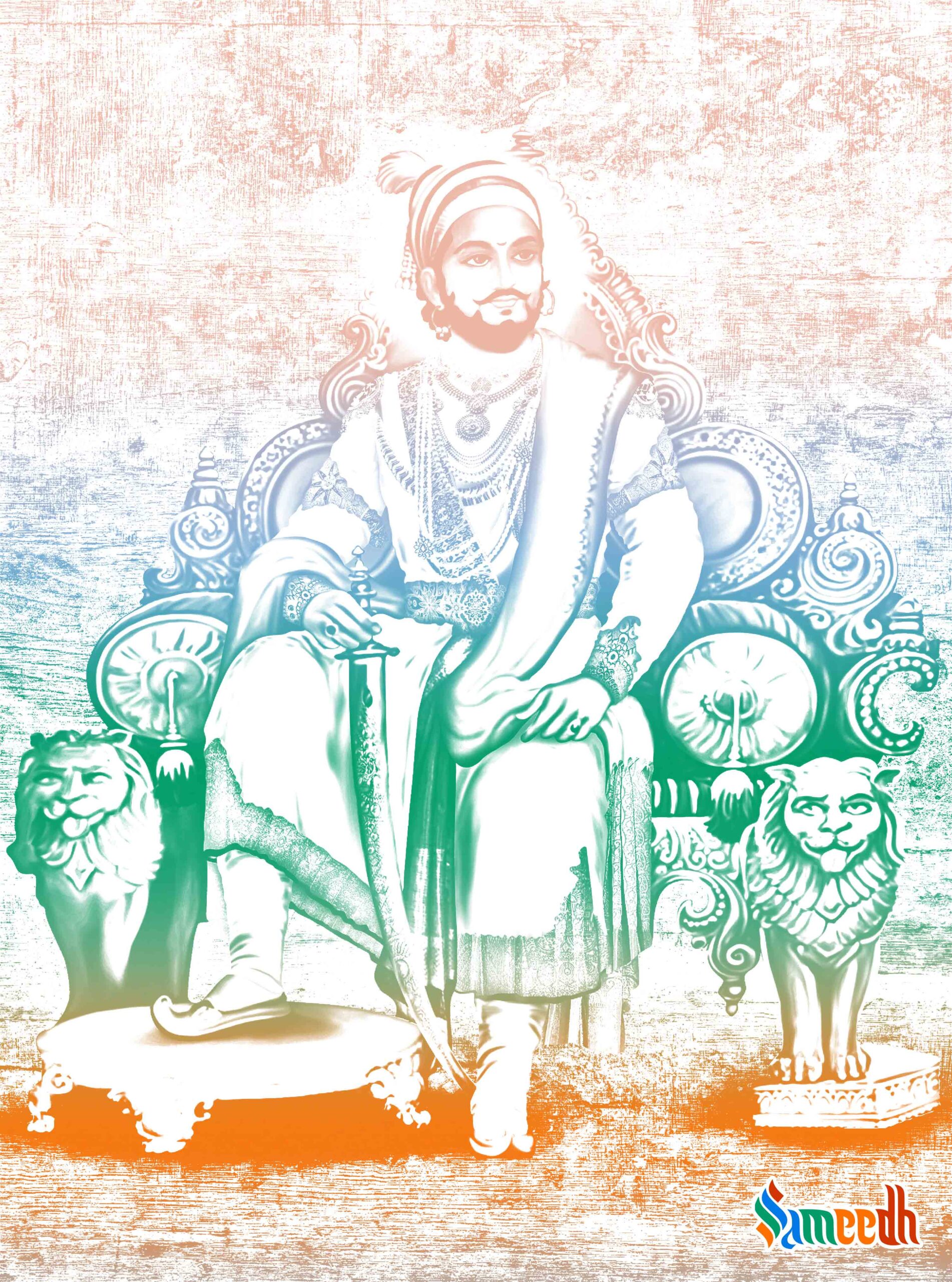Recapitulating the exceptional leadership skills and talents of the most respected and loved ruler of India, Chhatrapati Shivaji.

Early Life
Shivaji was born to Shahaji Bhonsle and Jijabai. His mother, Jijabai was an avid devotee of lord Shiva. His mother’s strong and pious religious inclination had a strong influence on him during his childhood. Shivaji’s father was a Maratha General.
Shivaji grew up under the guidance of his parents and a group of brilliant and talented ministers who taught him very important military and leadership skills. He was taught and trained in martial arts at a very young age.
Life events and contribution to society
A Young Warrior
When he was 16 years old, he conquered many forts under the rule of Bijapur Sultanate in Maharashtra which held an important strategic importance to the reign of Sultanate of Bjiapur. He overtook Torna Fort, Chakan Fort, Kondana Fort and the most important one, Fort Raigarh
The conquest of Shivaji over the Fort of Raigad played a very important role in the initiation of supremacy of the Maratha Empire and rise of Shivaji.
When Shivaji conquered Raigad Fort, he strategically overtook the reign of Adilshahi empire and started the growth of the Maratha Empire over the Konkan Region. It was at this fort at Raigad that Shivaji was crowned with the title of Chhatrapati in 1674.
He became the first Chhatrapati or King of kings of the Maratha Dynasty
Major Events
An Astute Leader
Shivaji became a revolutionary leader and a ruler with unifying and unique policies of administration. He appointed Ashtapradhan or Eight Ministers to make sure the policies of the administration are executed properly. He undertook the task of maintaining accountability of the executive branch of the administration over his subjects very seriously. He removed the exploitative Jagirdari System and established the Ryotwari System in its place. This new system of revenue collection and administration eliminated the easily corruptible system of middlemen which was rampant in the Jagirdari system of revenue administration.
He built a very clear and detailed form of measuring income and taxes. Shivaji implemented two new sources of income, Chauth and Sardeshmukhi. These instruments were invented to safeguard and maintain the region of control under Maratha Kingdom and was collected from regions which were not a part of the Maratha Kingdom.
Shivaji ensured an honest setup of administration in his kingdom by making sure all the corrupt elements were removed and punished. Under his system of Mirasdars, those who grew corrupt and tries to build their supremacy were strictly punished by Shivaji.
Shivaji was a just and sovereign ruler of his kingdom. He was not intolerant of religions other than Hinduism and also discouraged caste discrimination.
This style of conscious and strict administration earned him many more titles which displayed his excellence, brilliance and honesty like Shakakarta, which means “Founder of an Era”.
Life Lessons
A Warrior King
Shivaji was known for his exceptional abilities in military capabilities which developed his rule over the Konkan area. He remained victorious over his enemies due to his great prowess in leading his army in the area. He was a revolutionary leader adept at building a strong, resilient and agile army. His renowned Guerrila Warfare tactic won him several battles against his enemies. Shivaji and his army won the Battle of Pratapgad in 1659 at Pratapgad against Afzal Khan and his army.
With Shivaji as the leader, the victory was decisive and built a name for Shivaji as an exceptional and ferocious warrior. Shivaji won Surat from the Mughals in 1670.
Shivaji established Maratha supremacy with his unique leadership, revolutionary policies and impressive martial arts skills. His legacy of leadership is celebrated by every generation of India.
To know more about the intriguing accounts of great Indian warriors who have etched unique imprints in the course of Indian history, stay tuned to Sameedh, as it entails an abundant and enriching knowledge of India’s cultural, social, traditional, political, and religious essence and quintessence, all-encompassing.